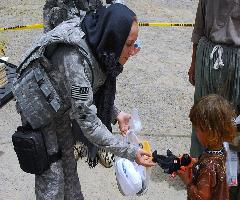I cannot see Filipinos seeing NSM that way. It is in fact appreciative to hear about the perception of the congregation if they treat NSMs that way but the concealed issue is bringing back the NSM commitments. Many cann understand the living situations of NSMs so the perception can be equal to the work of those stipendiary ministers but not on the equity of demands and expectations. The Episcopal Church of the Philippines as I can see is lagging behind the foundation of specialized ministries as compared to other denominations. While some denominations have their “Singles for Christ” Ministry, the
ECP does not have one and so the tendency of those who want to remain single for a lifetime but love to serve Christ and the church may face a lot of teasing from the organization they joined, placing them the out ‘out-of-place’ feeling. I’ve seen another denomination in which they have an organization for all businessmen and women. The aim is to teach them how to be God’s faithful stewards and givers to the needy. This is the reason why many successful business persons can contribute and give more than what they want to give for the benefit of the works of the church. I’ve read one article about a businessman who gives 50,000.00 of his monthly income just for the church.Specialized ministries
Such specialized ministries give a deep impact to NSM. Hence, the challenge is no longer on treating them as second class ministers but a first class minister with many expectations and demands. It’s a saddened reality that the ECP does not have ministries with specializations (As I observed, we’re only focused to the Choir, ECW, BSA, Youth, Sunday School, Vestry) and this is where NSMs might be putting themselves to prevent much commitments but it’s not. NSMs are being seen as a generalist and are thereby expected to perform what a stipendiary priest is performing.
Getting back and connecting to the ‘dry and burn out ‘issue, if an NSM puts himself into commitments, there is nothing wrong about it. the only problem is if the commitments they are doing are so heavy that they cannot separate. It maybe because of taking responsibilities that is not the intentions of God for them to do. Yes, it’s true that NSMs can have the proper training and learning of involving themselves to such general ministry. They can also
have the means to perform just as what the priest of their church is doing but what if they do not want to focus being a generalist minister and instead focus in their areas of expertise? Imagine if you’re and NSM whose forte is on the field of business. You are passionate about business stuff and is good at managing the resources of the church but not really on the healing ministry. Then one time, a member of the church who is sick called you to pray for them and perform healing services. Another one called for you and another family until the healing ministry becomes your priority than your passionate field. The result? Of course, spiritual dryness and burn out because you are functioning as someone that God did not mold you to be.Recommendation
I know it’s easier said than done but I hope it will always start from us who would like to take NSM. My classmates come from different professions so I pray and hope that upon graduation at the theology class, we or some of us would revive the tent-making idea of Paul. Then when we will be destined to our own church, that’s the time that educating for the congregation takes its place. We’ll never know but I can see in my hope that NSM will become attractive for those who wish to pursue if the case is the recommendation.
Another recommendation is to include in the curriculum of the seminary about offered subjects that could take students into their own interest of specialization. This is in comparison to the Education courses where students choose what subjects they want to teach. Theological institutions might also want to include it in their curriculum even if it takes a semester or two. Say for example, if the student wants to involve himself in healing ministry, then he will take subjects related to health and psychology for one semester. If all bout business, then subjects related to business management and accounting will do. If Sunday school, subject related to teaching will also do.
See other related articles: 1. On Non-Stipendiary Ministry- Overview 2. On Non-Stipendiary Ministry- Burn out and Spiritual Dryness













